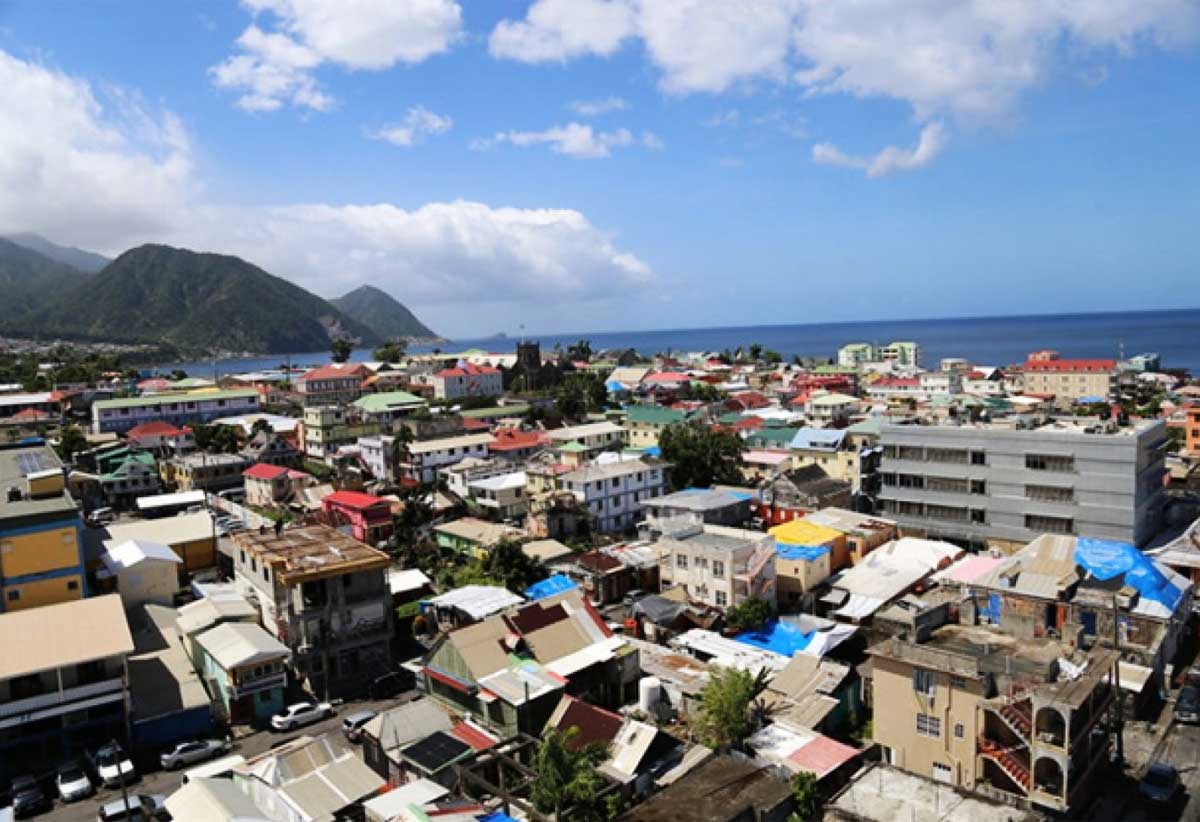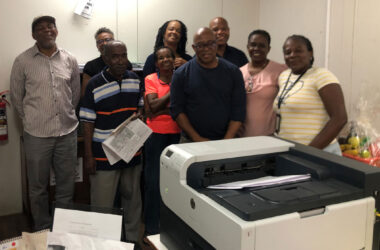
While addressing the membership of the St Lucia Chamber of Commerce and Industry about three years ago prior to the Covid-19 pandemic, a consultant from the International Labour Organisataion (ILO) noted that the ‘nature of work’ is changing globally – and so, citizens will have to adapt to different job situations in order to sustain livelihoods.
The ILO expert said it was inevitable that people out of necessity may have to change jobs or undertake additional or optional tasks in an effort to make ends meet. He likened these developments in the global market of work as another ‘Industrial Revolution’ in the making.
And now with world leaders, technocrats, government officials, financial agencies, business entities, other groups and citizens generally seeking for measures to rebound post-Covid, the ‘ball game’ has certainly changed and more and more global affairs are evolving, sometimes at a rapid pace.
Changes are mostly evident in the socio-economic sphere, healthcare and health protocols, banking institutions and within the wider scope for micro, small, medium business enterprises.
More recently, Governor of the Eastern Caribbean Central Bank (ECCB) Timothy Antoine declared that the region needs more entrepreneurs. He called for more youth involvement in job creation, since ‘the benefits of entrepreneurship go well beyond businesses and their owners’.
The ECCB governor noted that entrepreneurship is often viewed as the foundation for inter-generational wealth and a driver of innovation and job creation.
And despite the financial challenges and hurdles encountered in accessing ‘start up’ funds to open a business, Antoine feels strongly that the region “needs more entrepreneurs” as this can translate into more of region’s youth getting to pursue and fulfill their dreams “to own businesses and create their own jobs.”
The ECCB and its partners launched Financial Information Month 2022 throughout the eight ECCB member countries on October 1.
On the home front, we have noted education authorities leaning towards inculcating more holistic academic programmes into the school curricula, with much focus on methods like the Technical and Vocational Education Training (TVET) being implemented in the wider communities.
An issue of socio-economic outreach and benefits to the populace being widely touted is the ‘Blue Economy’- and the message of the ‘vast economic benefits’ and gains to be derived from this sector has been reinforced and promoted in various forums.
It is not uncommon nowadays, for people to find different and innovative ways to earn a living in these crucial times, with some persons having to hold down two or more jobs to get by.
Like most of the other sub-regional and larger regional territories, Saint Lucia too is surrounded by water, and persistent calls from marine experts for government authorities to pay greater attention to that sector should not be over looked.
Statistics reveal the widening gap of youth unemployment in the wider region and the ‘Blue Economy’ provides the scope for increased and rewarding job opportunities to be derived.
There are cases of young persons from the south-western region, in communities like Soufriere and Choiseul who have indicated their desire to get into the ‘boat building’ component. And about some four years ago, a local publication featured the pursuits of a young entrepreneur from the Soufriere region who had championed such a cause, utilizing his technical skills and creativity to build a boat.
Though it was a good concept, at the time, this venture was never widely supported or given the due attention that it deserved. But the young man keeps on ‘paddling’ with his ideas nonetheless, with hopes that he may someday be able to bring this project to fruition – and to assist other young people from his community towards gaining livelihoods from the ‘Blue Economy’.
Notably , the blue economy encompasses all industries and sectors related to oceans, seas and coasts, whether they are based in the marine environment (e.g. shipping, fisheries, energy generation) or on land (e.g. ports, shipyards, land-based aquaculture and algae production, coastal tourism).
And according to the World Bank, the blue economy is defined as the “sustainable use of ocean resources for economic growth, improved livelihoods, and jobs while preserving the health of ocean ecosystem”.
Additionally, “A blue economy is a long-term strategy aimed at supporting sustainable economic growth through oceans-related sectors and activities, while improving human well-being and social equity and preserving the environment.”
A World Bank report states that, the countries of the Eastern Caribbean are large maritime nations with a combined ocean area of more than 546,000 km2, supporting traditional sectors of the blue economy, e.g., fisheries, tourism, and shipping, as well as emerging sectors such as mariculture, renewable energy, and biotechnology.
Meanwhile, it adds, the Eastern Caribbean is today at the forefront of global efforts to invest heavily in developing its blue economy in close partnership with the World Bank, the Global Environment Facility, and the PROBLUE Multi-Donor Trust Fund. The launching of the Unleashing of the Blue Economy of the Caribbean Project (UBEC) is a great example of how the Caribbean is advancing.
UBEC is a US$60 million project from International Development Association and PROBLUE-financed regional blue economy investment program. The project is designed for the whole of the Caribbean and benefits Grenada, Saint Lucia, St. Vincent and the Grenadines (SVG) and involves the OECS Commission in Phase I from 2022 to 2027.
Sometime in the mid-2000s, the fisheries department had attempted to initiate a shipping or boating course for young persons from the Gros Islet community, but the programme never fully materialized. Young prospective participants were to undergo at least a six-month training period where they would gain knowledge of compassing and other boating procedures, and upon completion of the exercise they would be certified as fishers. In addition, the successful applicant would be provided with support to own a pirogue- fishing vessel, to undertake their craft. The organsiers would put down the initial deposit to acquire the vessel, while the boat owner would submit regular monthly payments to fully acquire the vessel.
However, the fisheries officers lamented that it was rather disappointing that no more than one or two youngsters from the area took on the exercise, and the programme was eventually shelved. There is dire need for such programmes to be incorporated into the wider communities in a bid to entice young persons into pursuing career paths associated with the ocean.
Also, during the tenure of the last administration, the notion of a Regional or Sub-Regional Sea Transportation project was initiated , but after all the ‘pomp and officialdom’ to launch the venture , nothing tangible has come out of this issue.
With increasing demands for job opportunities to help offset the ‘financial crunch’- the ‘Blue Economy’, if pursued vigorously and resourcefully can help provide livelihoods for many young people.
Interestingly, global reports indicate that the stakes are high and “Unleashing the Blue Economy in Caribbean islands, and SIDS worldwide, offers enormous potential to diversify economies, strengthen resilience to global shocks and climate change, and create long-term, meaningful jobs for all.”













